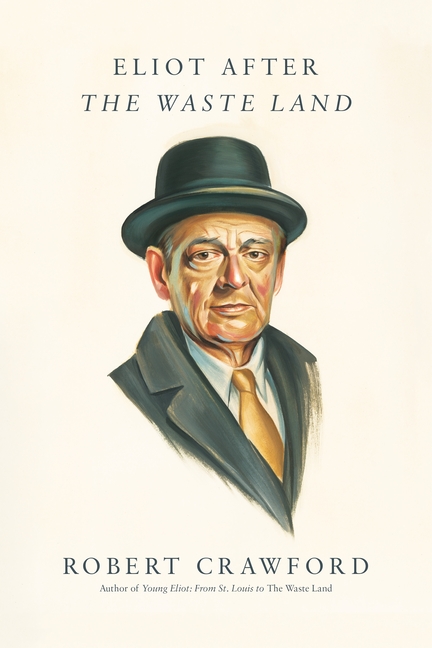... masterly ... For readers partial to the daring rebel who wrote poems like The Love Song of J. Alfred Prufrock, Preludes and The Waste Land, the trajectory this book traces may feel a bit dispiriting, like watching a favorite punk musician turn into a Lawrence Welk fan fond of Fox News. But Crawford is an excellent guide to the intense personal pressures and cultural forces that fueled the dramatic transformations Eliot underwent in the wake of The Waste Land ... Drawing on revelatory new material, Crawford provides a lively, illuminating narrative of the poet’s long second act ... Although there have been several important earlier accounts of Eliot’s life (including Lyndall Gordon’s superb 1998 biography), Crawford’s book is invaluable because it is the first to draw upon a gold mine that scholars have been dying to get their hands on for the past half-century — an archive of 1,131 letters that Eliot wrote to Emily Hale, an American woman he first fell in love with as a young graduate student ... Crawford handles this extraordinary, soap-operatic story with sensitivity and aplomb ... To his credit, Crawford does not shy away from the uglier, 'rebarbative aspects of his psyche' that have long been apparent — especially the misogyny, racism and antisemitism that run through Eliot’s life and work like diseased, cancerous tissue ... Tackling the poet’s contradictions head on, this book gives us a keenly nuanced, three-dimensional portrait of Eliot, warts and all ... Weaving together an enormous amount of material in exhaustive, sometimes exhausting detail, Crawford’s magisterial biography provides the fullest account to date of how Eliot transmuted his messy life and private struggles into art. Eliot may have strenuously promoted the influential argument that 'it is not in his personal emotions, the emotions provoked by particular events in his life, that the poet is in any way remarkable or interesting,' but readers of this fascinating, indispensable book will surely disagree.
Read Full Review >>

